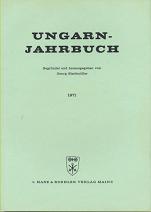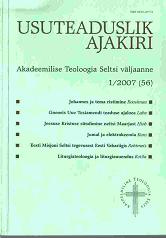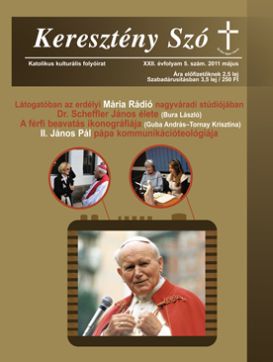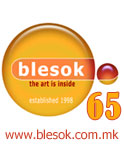Gnoosis Uues Testamendis kui probleem Uue Testamendi teaduse ajaloos
Author(s): Jaan Lahe / Language(s): Estonian
/ Issue: 1 (56)/2007
Keywords: New Testament Studies; Gnosis
Die Gnosis im Neuen Testament als ein Problem in der Geschichte der neutestamentlichen Wissensachaft. Das Thema die Gnosis im Neuen Testament ist für die neutestamentliche Wissenschaft seit langem von grosser Bedeutung. Schon H. Hammond (1653) hat Paulus´ Gegner in allen seinen Briefen (einschließlich Gal und Röm) mit Gnostikern identifiziert. Obwohl bereits J. Clericus, der Herausgeber Hammonds Werk im Jahre 1698, meinte, dass die Ansicht von Hammond zu extrem war, vertraten noch im 18. und im 19. Jahrhundert (mit kleineren oder großeren Zugeständnissen) J. L. Mosheim, C. W. F. Walch, E. Burton u.a einen ähnlichen Standpunkt. Die überwiegende Mehrheit der heutigen Wissenschaftler ist mit dem Standpunkt von Hammond nicht einverstanden. Jedoch gibt es auch heute etliche moderne Forscher, die manche „Irrlehrer” im Neuen Testament (z.B. in den Pastoralbriefen) mit der gnostischen Bewegung verbinden. Anfang des 20. Jahrhunderts lenkte die sog. „Religionsgeschichtliche Schule” (H. Gunkel, R. Reitzenstein, W. Bousset u.a.) die Aufmerksamkeit auf die Tatsache, daß es bei den Autoren des Neuen Testaments selber (vor allem bei Paulus und Johannes) solche Vorstellungen, Gedanken und Begriffe vorkommen, die an die Gnosis erinnern. Am gründlichsten hat solche „Gnostische Motive” Rudolf Bultmann behandelt. Heute sind vielen Bultmanns Thesen nicht mehr zuzustimmen (wie z.B. die Existenz einer vorchristlichen Gnosis, der Mythos vom Urmenschen als ein gnostisches Hauptmythologem), und viele Forscher legen diese Motive losgelöst von der Gnosis aus. Doch gibt es auch jetzt Wissenschaftler, die die genannten Vorstellungen und Begriffe (zumindest in einigen Briefen und jeweils fragmentarisch) mit der Gnosis in Zusammenhang bringen. In dem vorliegenden Aufsatz geht man nicht der alten Frage nach, ob es im Neuen Testament tatsächlich die Gnosis vorzufinden sei. Statt dessen versucht man darzustellen, wie sich die Ansichten in diesem Themenbereich im Laufe der Geschichte der neutestamentlichen Wissenschaft verändert haben.
More...





